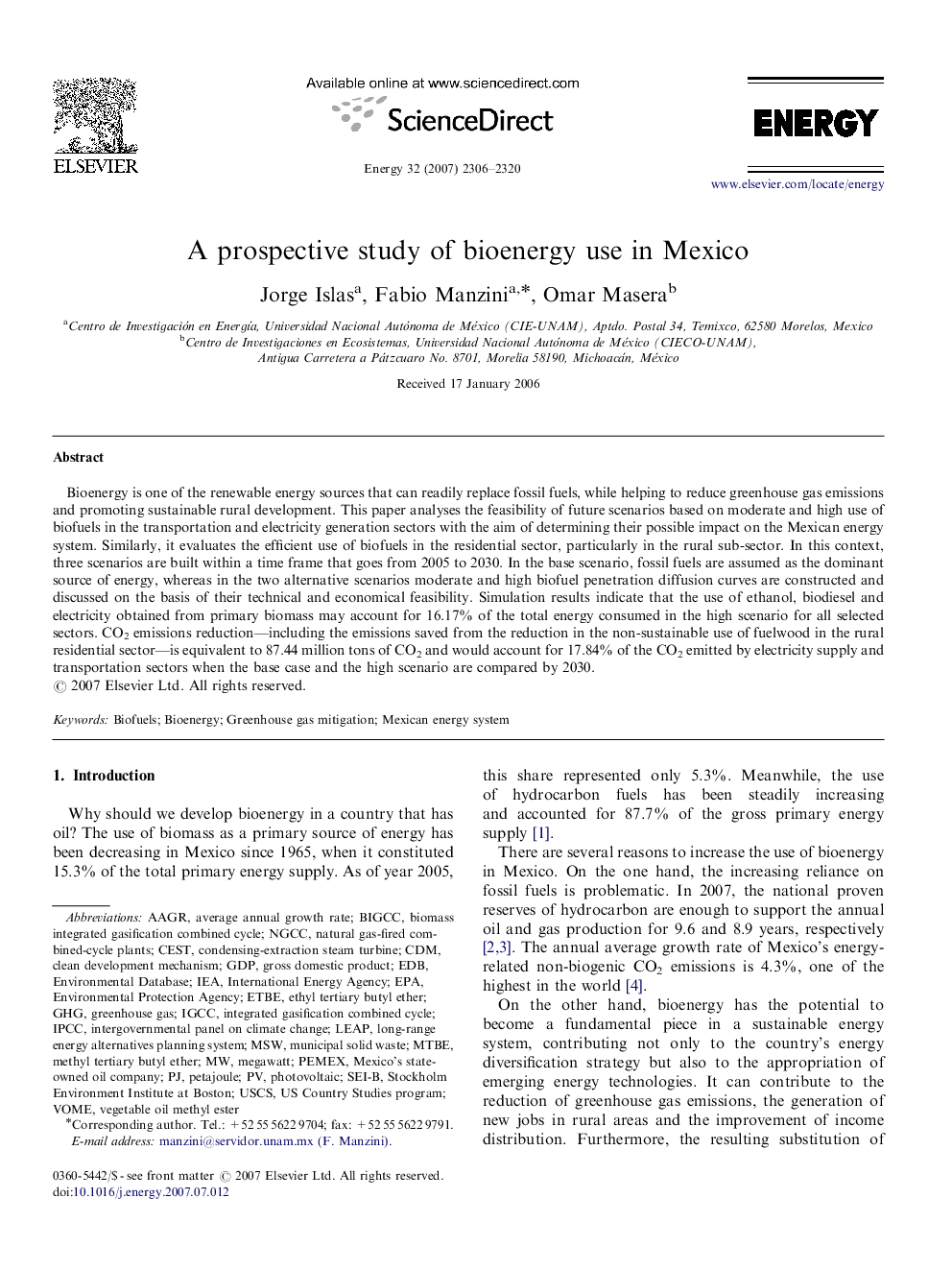| Article ID | Journal | Published Year | Pages | File Type |
|---|---|---|---|---|
| 1735981 | Energy | 2007 | 15 Pages |
Bioenergy is one of the renewable energy sources that can readily replace fossil fuels, while helping to reduce greenhouse gas emissions and promoting sustainable rural development. This paper analyses the feasibility of future scenarios based on moderate and high use of biofuels in the transportation and electricity generation sectors with the aim of determining their possible impact on the Mexican energy system. Similarly, it evaluates the efficient use of biofuels in the residential sector, particularly in the rural sub-sector. In this context, three scenarios are built within a time frame that goes from 2005 to 2030. In the base scenario, fossil fuels are assumed as the dominant source of energy, whereas in the two alternative scenarios moderate and high biofuel penetration diffusion curves are constructed and discussed on the basis of their technical and economical feasibility. Simulation results indicate that the use of ethanol, biodiesel and electricity obtained from primary biomass may account for 16.17% of the total energy consumed in the high scenario for all selected sectors. CO2 emissions reduction—including the emissions saved from the reduction in the non-sustainable use of fuelwood in the rural residential sector—is equivalent to 87.44 million tons of CO2 and would account for 17.84% of the CO2 emitted by electricity supply and transportation sectors when the base case and the high scenario are compared by 2030.
